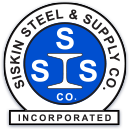Stainless steel is a group of ferrous alloys that are made up of a minimum of 11% chromium, a composition that prevents iron from rusting and provides heat-resistant properties. Different types of stainless steel include the elements carbon, nickel, nitrogen, silicon, aluminum, sulfur, titanium, molybdenum, copper, selenium, and niobium.
Chromium plays a principal role in helping stainless steel form a passive film layer that protects parent material attacks from corrosion and can self-heal in the presence of oxygen. There is a direct correlation between the increase of chromium, nickel and molybdenum and corrosion resistance. Nitrogen content levels are also helpful in the increase of pitting corrosion and mechanical strength.
Stainless steel’s resistance to corrosion and low maintenance has made it a popular selection for many end use applications including appliances, cookware, building facades, storage tanks and chemical vessels. Stainless steel is also commonly utilized in chemical plants, architectural applications, paper mills, wastewater treatment facilities, food production and pharmaceutical production.
Another group of stainless steel alloys beyond austenitic, ferritic and martensitic are known as duplex stainless steels that have a mixed microstructure of austenite and ferrite. Duplex and super duplex alloys include 2205 and 2507.
We stock a full line of stainless steel products including sheet, plate, angle, flat bar, round bar, tube and pipe and can also supply stainless beams and channels.
The most common stainless steel alloys are 303, 304 / 304L and 316L but there are many other stainless steel alloys beyond these. Other stainless steel alloys include 309, 310, 321, 347, 409, 410 and 420.


